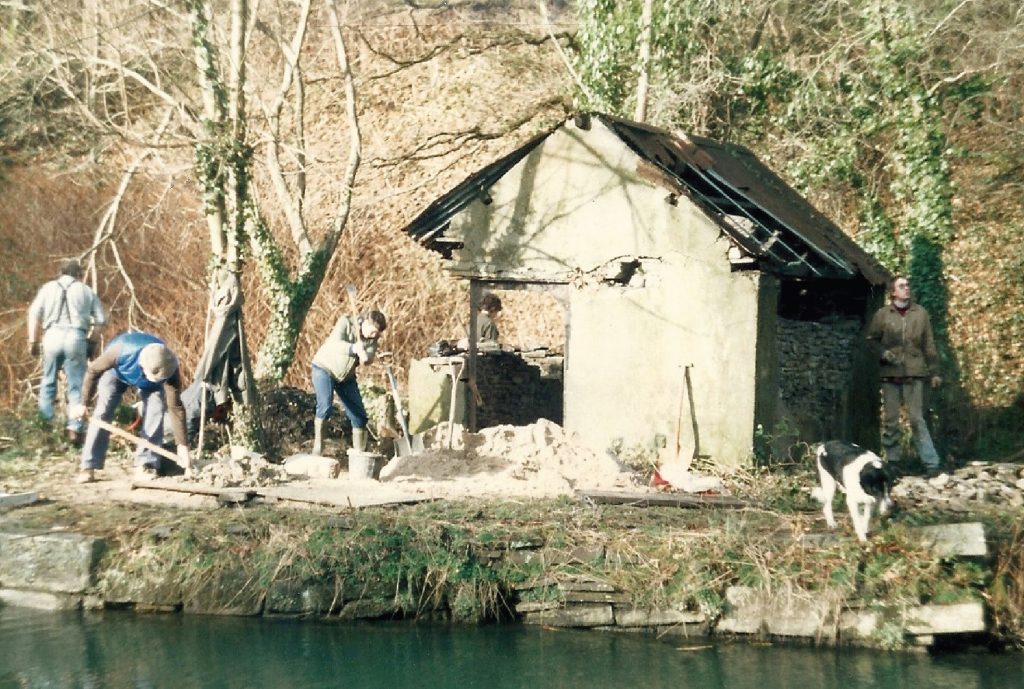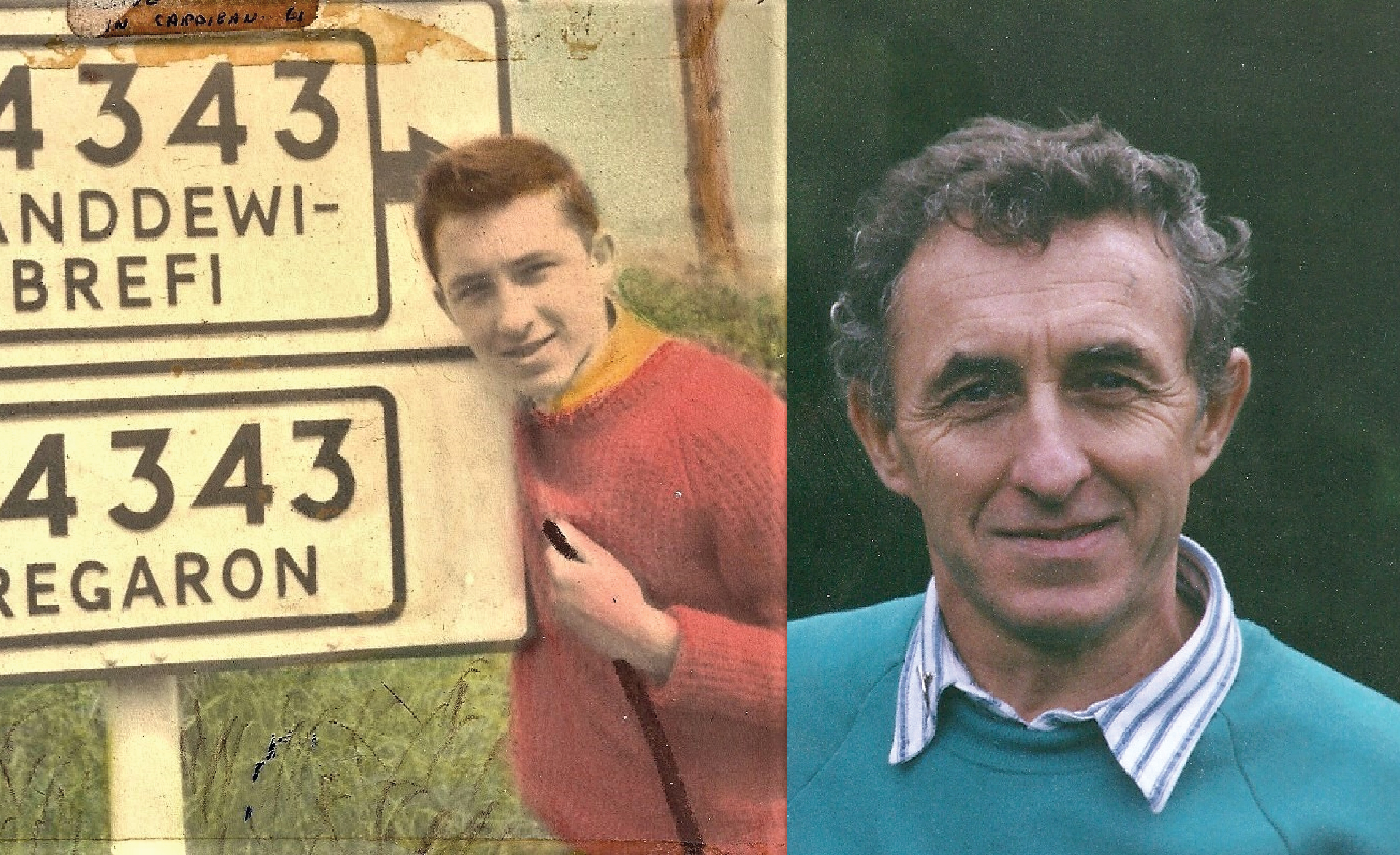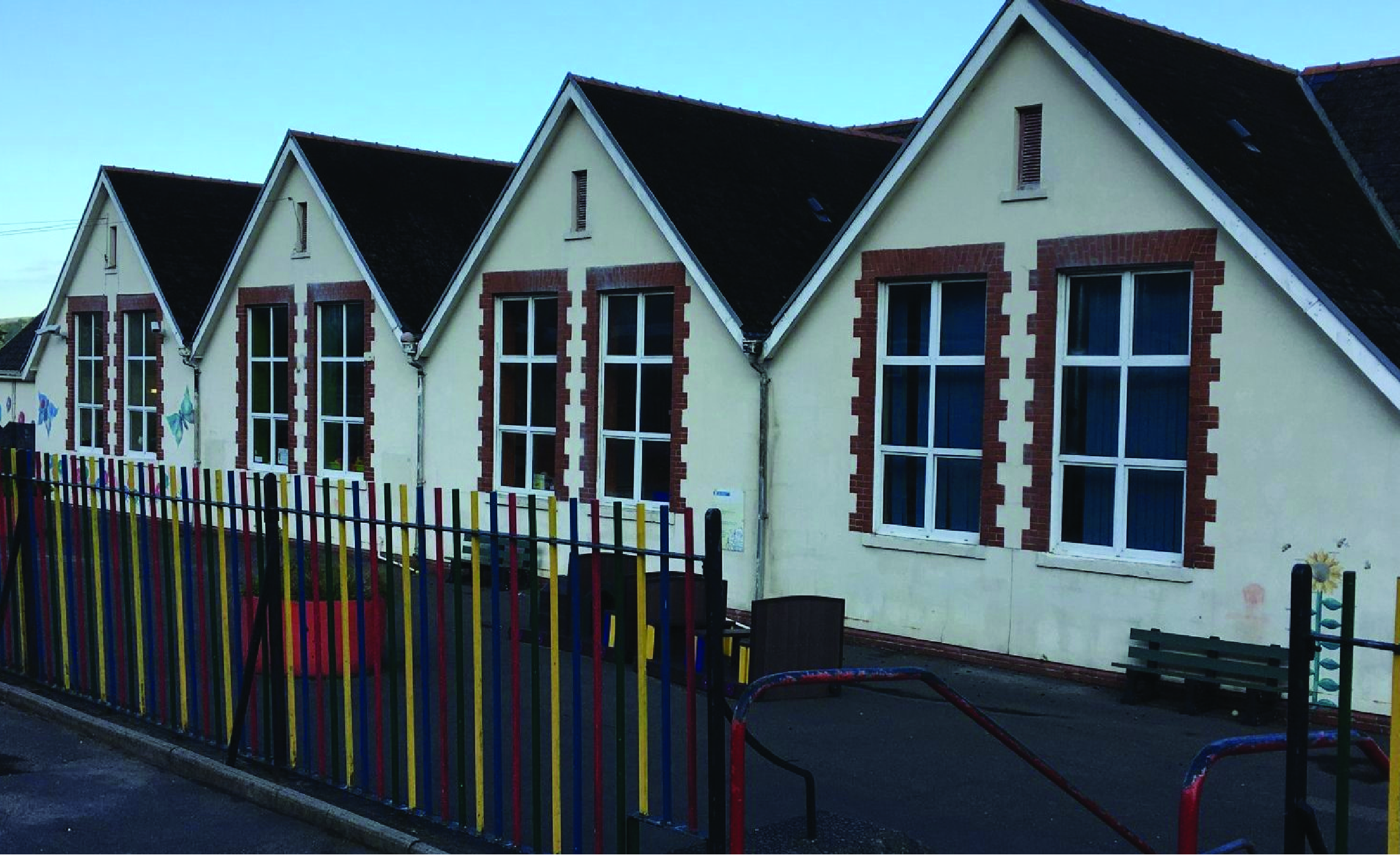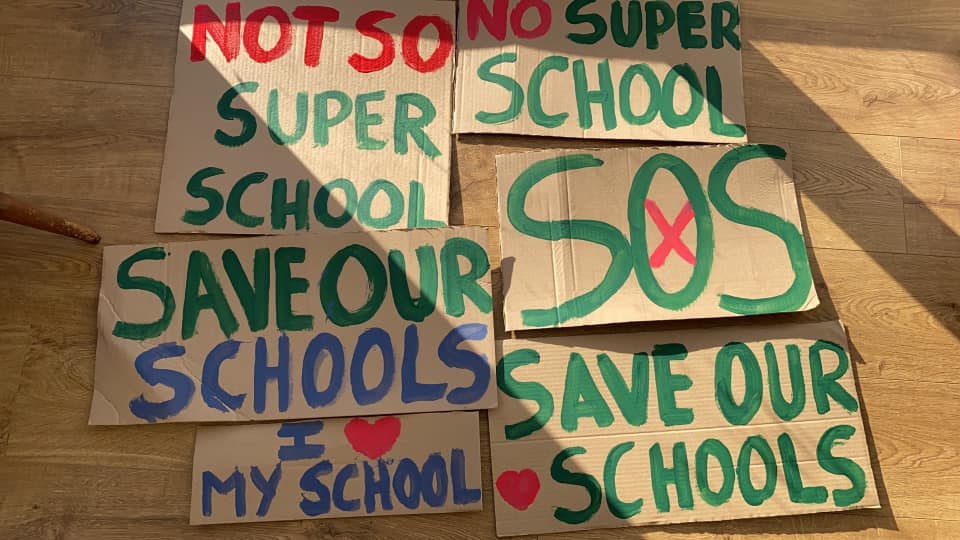Pontardawe People: Clive Reed
Clive Reed is a well-known and respected historian here in Pontardawe. During these Covid times I was unable to meet up with Clive but we spoke on the phone about his time here in Pontardawe.
When did you first set foot in Pontardawe?
When I was in school. I lived in Neath but me and my school friends would cycle every Sunday about 15-20 miles. From Neath, over to Bryncoch, up to Rhos, down into Ponty and then down to Clydach and back to Neath. The steelworks were still standing, it was the 1950s and I remember them. My father worked in the tinplate industry. I grew up with industry, the whole family did, men going to work with clogs on. It is a million years ago from now, everybody in our street worked in industry. One of my grandfathers was a clerical worker, going house to house sorting out insurance but everyone else worked in industry – the railway, the docks, coal mines, steelworks. Everyone the same. Same money, same long hours, same hard work.
Pontardawe 40s/50s
Was it a better time?
I think it was a better time. It gave people values. I was born in the war but I did not see my dad until 1947. This man came to our house and I was thinking ‘who is this man in a uniform?’ and it was my father. My Mam lived with my Grandparents then. There were my Grandparents, my Mother, my Aunty, me and my Brother. After the war we had my Grandparents, my Mam, my Aunty, 2 Uncles and me and my Brother, all in a terraced house in Neath. It gave you values. Later, from 1958 I worked as a tradesman in the steelworks where I learned different trades. Everyone did everything for themselves.
People had gone through the 1930s, the depression and the 40s. In the 30s, I think about 2.5 million were out of work. The government could not afford to give out money to support everyone and so there was a means test. The council officer would come round and before you could have any money, they would assess your house. They would count the people in the home, count the chairs, if you had any spare chairs then they must be sold; any bed, 2 person per bed. It taught people values that they had to work. I hate it today, people moaning about not having a new car, kids not having a new phone etc.
Moving to Ynysmeudwy
When did you move to Pontardawe?
It was 1980. I was living in Neath. I then worked in Port Talbot steelworks, so I moved there. Didn’t like it on the furnaces and a mate told me there were great jobs in Slough. I tried that, stayed for 2 years, but then the factory closed so I moved to Resolven for work there. But that was the way it was, you followed the work. I got a job on the docks in the shipyard in Port Talbot and spent 22 years there. It was hard work but good work. Worked in Barry, Cardiff, Newport, Swansea, repairing oil tankers, war ships, yachts, coal boats, everything.
I moved to Ynysmeudwy in 1980. A cottage, home from home. Growing up in Neath, there was no front garden and nobody locked the door. Every neighbour would knock and walk in. No theft. When I moved to Ynysmeudwy nobody locked doors, everyone talked to their next-door neighbour. I thought it was magical, with a little wood behind the cottage, the canal the other side. I’d sit in the woods and see badgers, foxes, owls. I thought Ynysmeudwy was full of lovely people, everyone willing to help. Superb people. It was the best place in the world. I loved looking out over the valley, forest, cottages, farms. We have been to Spain on holiday and looking towards Alltwen from where I am now, the view reminds me of that. The scenery is so outstanding. So many people do not appreciate it. I love this place.

Swansea Canal Society
Could you tell me a bit about your time with the Canal Society?
The Swansea Canal Society had been formed in 1980/81 and one day someone said to me “why don’t you join? we meet every Sunday, 10-12, all ages” and so I did. I was 37 years old and I thought that I was getting on a bit, that was forty years ago! I remember these elderly people (as I thought at the time) bringing flasks of coffee and biscuits down to us working on it. This was the support from the community. The four that stand out to me were Eunice Williams, Don Britton and Sam and Doreen Howard.
I made so many good friends there. Men and women, restoring the tow paths together. I had a fabulous time. There are so many helpful people here. When we started working on the canal it was filthy. You couldn’t walk along it, the tow path was mud and water all the way, from cattle drinking in the canal as the hedges were all broken.
Working together
We worked with the canal owners, British Waterways, and dredged the canal, laid an all-weather tow path the whole way. We fenced the canal from Clydach up to Godre’r’graig, all 5 miles. Repaired bridges and got schools involved with planting bulbs and plants and with history projects. We took cars, tyres, doors and furniture out of the canal. We must have pulled about 30 or 40 tons out in the first 10 years.
I had taken over the restoration projects in 1983 and organised rebuilding of the lock keeper’s residence at Ynysmeudwy, plus more dredging to enable a trip boat to work on the canal. We built, almost from scratch, the David Papa Thomas, which operated for five years and carried thousands of passengers from Pontardawe to Ynysmeudwy and back. I can’t physically work now but our volunteers are still working 1 day every week. 40 volunteers, some have been doing it for 40 years. I’m proud of the Swansea Canal Society and its amazing members.
Pontardawe History
Did this lead to your interest in local history?
Well West Glamorgan Council was helping to rejuvenate the area and the Cross Community Centre was well supported. There were over 100 groups meeting in the Cross every week, the largest number anywhere in Wales. You could learn Gaelic, French, Welsh, Woodworking, Ceramics, you could learn anything, but no classes on local history. So, each year the Canal Society put on an exhibition on what we found in the canal. One was a cannon ball, made at Ynyscedwyn.
People would come in and start telling their stories about the canal. People they knew who had worked on a barge etc. I would tape record people and documented 100s of different stories. Finding out who built the barges, the people who worked them. Stories of the tin plate workers, steel workers, pottery, shops. People wanted to talk, to tell the stories of where they had been, what their parents had done and for it not to be forgotten. When we were recording people’s memories, we were recording the history of the village.
University
I had never been to university, I left school for work. I had always wanted to go to university but never had the opportunity. In 1988, part time courses were being advertised in Swansea and I went along after work one evening. There was a course on research skills and I thought that this was fabulous. So, I spent 3 years doing the course and I wrote a thesis on Ynysmeudwy Pottery. The Swansea Valley bypass was in progress with work being done at Ynysmeudwy and I went to the old pottery site. The bulldozers were churning up loads of old pottery and I would go there after work and fill coal sacks of the stuff. I would get back and wash it, clean it and I spent 4 or 5 years sorting and cataloguing it. Hardly anyone knew much about this pottery in the area at that time.
In 1992 I was made redundant. I decided I would go for my dream and go to university. I applied to Swansea at 50, I passed the exam and got a place. A 3-year course. I went there and I was in heaven. Learning different history, how to write essays correctly. I was there from 50 to 53 years of age. I did another thesis, this time on the Swansea Canal and its potential for tourism and I got a BA(hons) 2.1 degree at 53 years old, I was very proud.
Published Pontardawe Author
And then you got into book writing?
I wrote my first book in 1994. Two Centuries of Pontardawe 1794-1994. Nobody knew that Pontardawe was 200 years old. Pontardawe was originally the name of the bridge by the Gwachel. There was no village. When this area started developing it took the name from the bridge which was half a mile down the road. By 1838 there were 40 buildings, that’s all. I wrote the book using early maps and documents. We sold all 1,500 books. My wife went to university and is artistic and so she edited the book for me. I was so proud of that book.
In around 2012/13, I came across a gentleman who said to me “I’ve got something I know you are going to want to see”. It was a Sale Catalogue for the Tareni Colliery which had gone bankrupt in 1928, and it listed every piece of equipment in the colliery; who made it, what it was, its price. As I was an industrialist, I understood what the tools and items were so I started writing little bits about it for local history societies.
Tareni Colliery
I found it fascinating, I talked to friends about it and I kept hearing “my brother worked there” or my cousin, neighbour, father etc…. Within 18 months about 50 people had said that they had known someone who had worked there. I contacted them all and had a chat, and I’d spend a couple of hours and just let them talk about the colliery and their families. Because I was a blacksmith, I understood the terminology. I had about 40 typescripts on working Iife in the colliery. So, I thought “I have to write all of this up”. I first thought that I would do a short story of about 5,000 to 6,000 words. Within 6 months I had written over 20,000 words.
I reached 300 pages altogether. Everyone offered me photographs, I took copies and returned them. We had 200 photos and document of people working there. It has now been published and we have sold over 600 books and are really proud of it. There were over 50 coal mines in the Swansea Valley and not a book written about any of them, so this is the first one on the coal mining in the Swansea Valley.
Proud
I am proud to have recorded those people’s stories. Half of them have passed away since I spoke with them. It always comes back to me that if we hadn’t interviewed them then their stories would not have been told. Godre’r’graig is there because of the miners. I interviewed about 12 women whose husbands or fathers had worked in the mine. Some were widows for 40 years and were so pleased to share their stories.
I had a great mate, Tom Williams from Grove Road. He told stories of when he worked there and when he talked, he would always wheeze and say ‘it’s the dust you see boy, the dust’, and it was still in his lungs when he passed away. Another friend, Noel Watkins from Ynysmeudwy, taught me a lot and loaned me many documents. In the front of our book is a dedication to him. My close mate, interested in local history, people and industry. A very, very good man, sadly passed away now.
Best thing
What is the best thing about Pontardawe?
My wife! She is actually a folk singer of British folk music. We’ve had a folk club in Pontardawe for over 50 years, now at the Glais Rugby Club, met twice a month before covid. We’re a group of people who sing or enjoy folk songs and the old stories they tell. Lynne loves singing, and marrying this wonderful lady is the best thing to ever happen to me. So many good friends around here, so friendly. It has the same values here as when I grew up.
What is the one thing that you would like to change?
I would love to see more of the historic buildings refurbished to give us an identity. The oldest building in Pontardawe is the old brewery, it should be refurbished as something useful for the community. I would like to see the historic buildings recognised. The bridge is the oldest thing in the area as a structure, built around 1784.
I feel sad seeing chapels boarded up, as a child we would go regularly and I feel sad seeing them today. Even if they aren’t used as a chapel, to have someone living in it, the identity of the town goes with it. If you go to Cwmtawe School, I don’t think there is a plaque to say that Pontardawe Steel Works was there on that spot. There is no William Parsons Road or William Gilbertson Place nearby. Without that steelworks and the canal there would be nothing here, no village, no town.
Proposed Pontardawe School Closures
Finally, with a hot topic of the month. How important are the current schools. How do you feel about their proposed closure?
I think that it is terrible, terrible, terrible. When you have a school, people can walk there with their parents. Now they will have to take them miles, all this world wide problem with pollution and our parents will have to drive to school; 4 journeys, there and back for drop off and again to pick them up. It is awful.
When you have a primary school the parents talk, it is the meeting place for the community, when they drive to Cwmtawe, they jump in the car and then they are gone, no social interaction at all. It would be a loss of something in the community for the children and parents losing that social interaction. I think its criminal to be honest. Criminal.
I suggest that if people are concerned, then they should write to Jeremy Miles. To Town Council, Local representatives, educational department and leader of the council.
I’d like to thank Clive for his time. I thoroughly enjoyed hearing about his life and time in Pontardawe. So much of what we know about the history of Pontardawe is thanks to his time and efforts over the years. I look forward to reading his new book on Tareni Colliery. There are old buildings all through this valley that have a story to tell and I expect the book will help tell some of these buildings tales.




Diolch Brilliant nicely done
Great work.I,d like to make contact as Ihave details and copies I have composed of two Pontardawe songs that have been recognised by the Folk song society of wales as being unique toPontardawe.Copies of the CDs containing the songs are in the archive of sound at the National Museum of Wales in Aberystwyth.